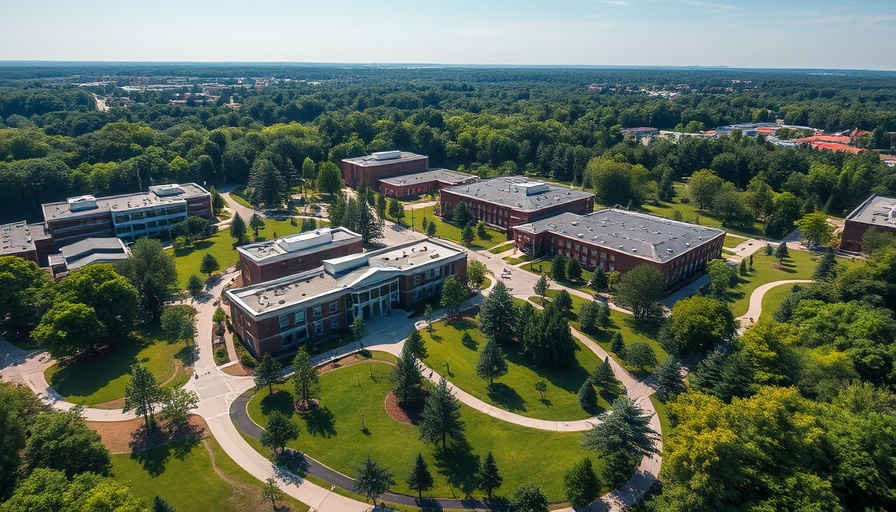
The Transition to Sustainable Landscapes at Universities
As educational institutions evolve, the emphasis on sustainable landscaping practices continues to gain traction. Sacred Heart University in Connecticut, through its partnership with Eastern Land Management, demonstrates how investment in campus beautification can directly correlate with both environmental sustainability and student satisfaction. By designing landscapes that not only impress but also serve educational purposes, colleges can foster healthier campuses.
Enhancing Aesthetic Appeal and Environmental Resilience
The landscape at Sacred Heart University, comprised of vibrant red and white plantings that reflect the university colors, exemplifies aesthetic enhancement while promoting environmental health. Such designs are not solely for visual appeal; they contribute to habitat restoration and stormwater management. This notion is mirrored at other leading institutions like Yale, where innovative rainwater systems profoundly reduce water usage—both strikingly beautiful and functionally important.
Challenges in Year-Round Campus Maintenance
Outdoor maintenance can be an uphill task, particularly amid unpredictable weather conditions. Greg Gross, branch manager for Eastern Land Management, cites how milder winters have allowed maintenance crews to perform necessary landscaping tasks even in colder months. This adaptability reflects a growing trend at universities to rethink traditional maintenance cycles to prioritize sustainability in all seasons, ensuring campus environments remain inviting year-round.
Student Engagement Through Green Spaces
The integration of healthy outdoor spaces encourages student interaction, fulfilling social and educational objectives. Whether it’s a casual meeting among peers or a venue for organized events, accessible green spaces function as critical communal areas. Similar initiatives at institutions like the University of Texas at Dallas showcase how effective landscaping significantly boosts student life satisfaction and potentially influences enrollment decisions.
Fostering an Eco-Conscious Community
As university landscapes evolve towards sustainability, they serve as practical learning environments for students. Programs like UConn's Master Gardener initiative not only engage students in environmental stewardship but also empower them with knowledge to apply sustainable practices in their future endeavors. This educational component is vital in developing informed citizens dedicated to ecological advocacy.
As Sacred Heart University continues to advance its commitment to sustainability, the intersection of education and landscape management offers profound benefits for students and the community alike. By embracing sustainable landscape solutions now, we pave the way for a greener future.
Ready to transform your own garden into a sustainable sanctuary? Explore local resources and gardening workshops available through community programs like UConn’s Master Gardener initiatives to get started!
 Add Row
Add Row  Add
Add 




Write A Comment